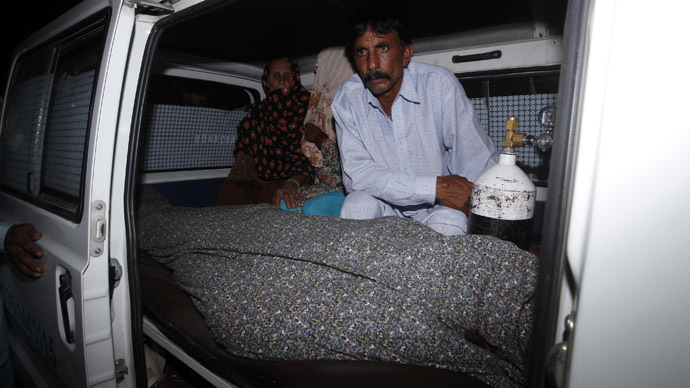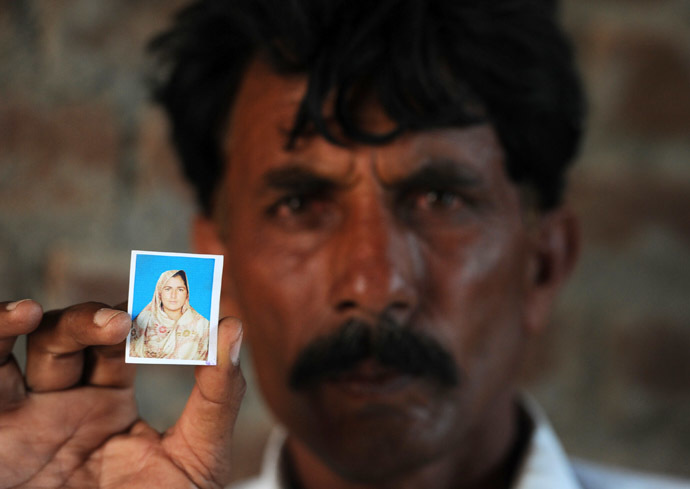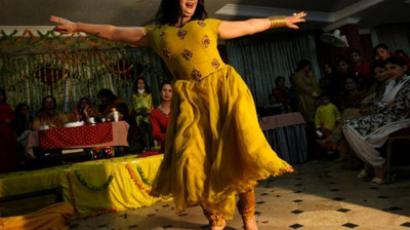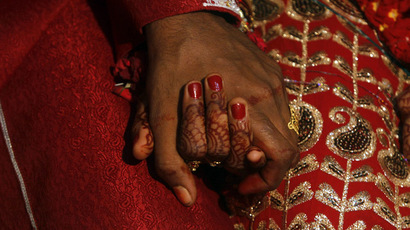4 Pakistani men receive death sentences in high-profile ‘honor killing’ of pregnant woman

Four male relatives of a pregnant woman beaten to death outside a High Court in Pakistan in a so-called "honor” killing have been sentenced to death. The case, which made headlines worldwide, comes amid hundreds of similar ones going virtually unnoticed.
Those found guilty in the case are the father, brother, cousin,
and a man claiming to be ex-husband of the murder victim,
25-year-old Farzana Iqbal, Reuters reports, citing defence lawyer
Mansoor Afridi. One more relative of the deceased got 10 years in
prison for the crime.
The men were convicted on charges of murder, terrorism and the
killing of an unborn baby. In addition to their sentences, which
in Pakistan are unlikely to be carried out as there is a
moratorium on executions, have also been fined $1,000.
The extraordinary circumstances of the Farzana Iqbal murder which
made the case stand out from hundreds of similar killings carried
out in Pakistan annually were that the murder took place in broad
daylight in a busy street of Pakistan’s second-largest city,
Lahore. The young woman was actually on her way to court to seek
protection there, when she was stoned by a group of men, mostly
her relatives.
The woman’s husband, Muhammed Iqbal, 45, says he begged nearby
police officers to intervene and stop the killing, but they
refused.
Farzana’s family was against her marriage. One of the attackers
said he was the woman’s husband and claimed she married Iqbal
without divorcing him.

Pakistan has had a de facto moratorium on the death penalty since
2008, effectively making the four men’s sentences life
imprisonment.
Relatives of the convicted men say they will appeal the court
decision, according to their lawyer, Afridi, who said the verdict
was "a decision based on sensationalism."
"My clients will appeal against their sentences as we believe
that the case had been politicized and the media coverage mounted
pressure on us," Afridi told AFP.
The case was a much publicized one with Pakistan's prime
minister, Nawaz Sharif, demanding action to catch the killers. It
also attracted much international attention with the United
States slamming the incident as "heinous."
Around 1,000 “honor killings” of women are estimated to be
carried out in Pakistan every year. Most of them do not make the
media headlines.
“In 2013, 869 women were killed in the name of honour in
Pakistan,” the Human Rights Commission of Pakistan (HRCP)
said in a statement.
The watchdog said that in just under half of the cases those
guilty were able to avoid punishment after having been forgiven
by families of the victims, as is allowed by Pakistani law.
HRCP believes “honor” killings persist in Pakistan
because of this particular legal practice.
Farzana Iqbal is not the only woman to suffer an "honor"
killing in her family. Her sister, Rehana, suffered the same fate
after she refused her family's instructions to leave her husband,
and Muhammad Iqbal, her husband who tried to prevent Farzana's
murder, himself murdered his own first wife to be with Farzana.
The same practice of "family forgiveness" allowed
Muhammad Iqbal to walk free after strangling his first wife, as
his son, who reported the crime, later "forgave" him and
withdrew the charges.














